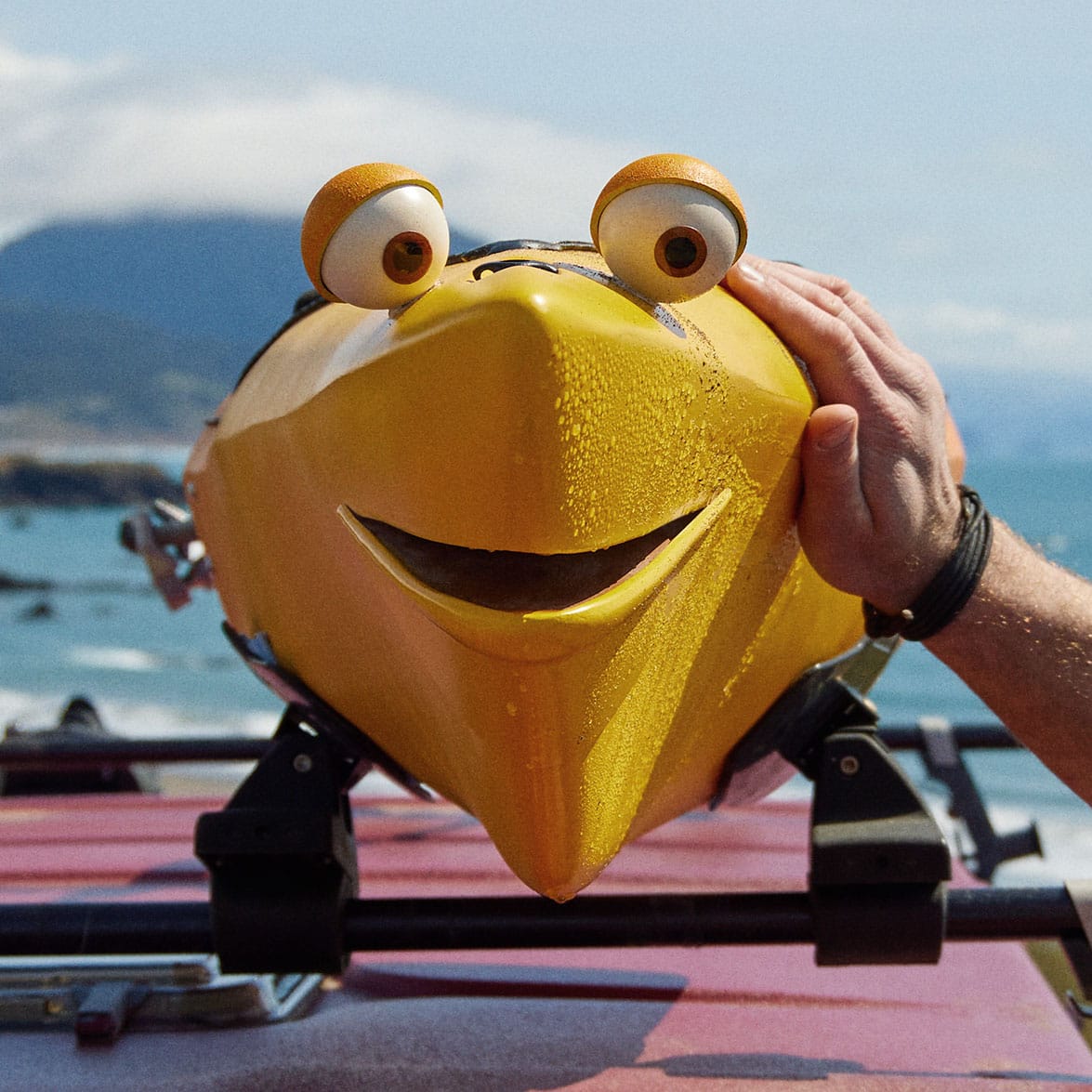Shirod Younker’s passion for canoes began early. Growing up near Coos Bay in the ’70s and ’80s, he recalls that his family had “many canoes and no rules.”
His Coos and Coquille Native American father and Filipino mother encouraged him and his two siblings to explore the South Slough estuary, which had long been home to his father’s people. As a child, this was his playground. Canoeing was his favorite activity, and he spent many hours learning to paddle, navigating the tides and winds, and sometimes even sleeping in a canoe.
Tribal culture was all around Younker, but he says, “You don’t know what it means to be Indian until you leave home.”
In college at Oregon State University, he found a deepening curiosity about his Native heritage. He especially began thinking about canoes. His family’s boats were contemporary fiberglass, and he wondered what had happened to their historic canoes — majestic vessels that were one of the most important aspects of tribal culture for centuries. He set out on a personal quest to solve this mystery.
Searching for Clues
In the mid-1990s, Younker became obsessed with the fact that he could find no historical examples of tribal canoes in Coos Bay. As far as he could tell, there existed no photos, written descriptions or drawings of the vessels used by Coos Indians. Younker scoured the countryside, driving around to little county museums on the Oregon Coast, poking around in archives looking for clues. He would often hear a similar story — someone would remember a canoe in the collection at some point, but it had long since disintegrated.
After several years of research, he finally found unpublished notes from an ethnographer, housed at the Smithsonian in Washington, D.C., describing the high-prowed canoes used by Native Americans in the waters of Coos Bay. Amazingly, he even discovered that “Coos” is a derivative of the Miluk Coos language word “thlagus,” which means “canoe.”
“That information just fueled my obsession even more,” says Younker, who soon enough decided that if he couldn’t find any traditional canoes, he’d just go ahead and build one. It was a natural alignment of his passions; in a parallel journey to his canoe fixation, he’d become an artist, earning a bachelors degree in fine art from Oregon State University.
Younker enlisted his father, other tribal members and an accomplished canoe builder to create replicas from the drawings he’d found — a canoe style locally referred to as “Chinook.” However, many tribes from around the Pacific Northwest have given the same style a variety of names.
As Younker began making these canoes, he discovered that many other Oregon and Washington tribes were also building their own. They had come to the same conclusion: Re-creating the canoes would invigorate cultural heritage and bring together tribal people with a common purpose.
Connecting Past and Present
Younker’s solo journey had become very much about connection. It had also merged into his career. His own youthful search for culture had inspired him to help young Native people connect with their heritage in a similar way, and he’d become manager of a pre-college art program for indigenous youth at Oregon College of Art and Craft in Portland.
“I want to help youth understand that there are subtleties to their own culture’s art and lifestyles that make each tribe unique,” Younker says, but he emphasizes that everyone has a responsibility to learn from their heritage. “I think taking the time to learn about anyone else’s culture gives us a better understanding of how to respect diversity and different points of view.”
Younker, his tribal compatriots and other “canoe families” from throughout the Pacific Northwest come together several times a year to hold informal races, or tribal journeys, that celebrate ancestral kinship ties and historical migration routes, as well as serve contemporary relationship building. These are often part of larger festivities, including artistry and feasting. Every September on the banks of Coos Bay, the Mill Luck Salmon Celebration gives visitors, both Native and non-Native, the chance to connect with tradition and place by eating salmon, experiencing performances, viewing arts and crafts of the Southern Oregon Coast tribes, and witnessing and participating in traditional canoe paddling.
The Mill Luck event is one of several experiences celebrating Native culture open to the public in Oregon each year — the Pendleton Round-Up, held each September in Eastern Oregon, includes a powwow in its events, and the multiday Delta Park Powwow takes place in Portland every June. Open year-round are the Museum at Warm Springs and the Tamástslikt Cultural Institute in Pendleton, each offering exhibits and events about tribes of the high plateaus and the Columbia River Gorge.
Opportunities like these are compelling and personal ways to enrich our appreciation of the historical and contemporary lives of our neighbors. “When we witness culture up close, it fosters respect,” says Younker. “With an open mind, you will learn something.”
– about videographer –
BRIAN KIMMEL
 Brian Kimmel is the producer and director of photography for Optic Nerve Productions. Based in Portland, Oregon his documentary and commercial work take him around the world to make images and films. Brian’s favorite assignments are the ones that keep him home in beautiful Oregon, including features on Bee Local and chef Justin Wills of Restaurant Beck.
Brian Kimmel is the producer and director of photography for Optic Nerve Productions. Based in Portland, Oregon his documentary and commercial work take him around the world to make images and films. Brian’s favorite assignments are the ones that keep him home in beautiful Oregon, including features on Bee Local and chef Justin Wills of Restaurant Beck.